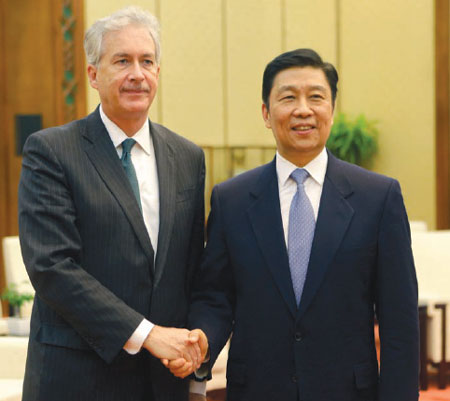VP urges Sino-US synergy
Updated: 2014-01-23 12:04
By Pu Zhendong in Beijing and Chen Weihua in Washington (China Daily USA)
|
|||||||||
Time to advance China-US ties, Li tells Burns
Chinese Vice-President Li Yuanchao said the principles of non-conflict, non-confrontation, mutual respect and win-win cooperation should be stressed to advance Sino-US relations this year.
"We should further implement the consensus reached by President Xi Jinping and US President Barack Obama on building a new type of major-country relationship," Li told the visiting US Deputy Secretary of State William Burns in Beijing on Wednesday.
"This year marks the 35th anniversary of formal diplomatic ties between the two countries," Li said. "We should promote pragmatic cooperation in various areas and properly manage divergences."
In Beijing, Burns met State Councilor Yang Jiechi and a number of senior Chinese government and military officials. Yang described Burns' visit as underscoring the importance that Washington attaches to advancing Sino-US relations.
Daniel Russel, assistant secretary of state for East Asian and Pacific affairs, was also in Beijing this week.
On Wednesday, Russel and his Chinese counterpart, Zheng Zeguang, presided over the fifth China-US Asia-Pacific Consultations in Beijing. The discussions, which first started in Honolulu, Hawaii, in June 2011, were the outcome of the 3rd China-US Strategic and Economic Dialogue to reflect Obama's and then-Chinese President Hu Jintao's commitment to building a positive, cooperative and comprehensive relationship.
Burns said the US remains committed to continuing to build a positive and cooperative relationship with China.
"It means building practical cooperation in areas of nuclear nonproliferation and climate change, and strengthening our economic relationship," Burns said.
A joint statement issued after the consultations on Wednesday announced the two countries' intention to cooperate in several areas, including disaster relief, helping Myanmar with health, stability and development issues, and aiding Afghanistan with the training of diplomats as well as bilateral and multilateral food safety, marine conservation and customs cooperation.
On Thursday, Burns will also lead a bilateral interim strategic security dialogue in Beijing, State Department spokeswoman Marie Harf said Wednesday.
"The two sides will exchange views on a wide range of strategic security issues," she said, adding that Russel is also in China for meetings. "And these regular consultations, all of them, reflect our respective commitment to foster a cooperative relationship in the region," Harf told the daily briefing.
Last week, the world's two largest economies wrapped up the latest round of Bilateral Investment Treaty talks, which are expected to further open up markets to both sides. Experts said the treaty is expected to be made final within two years.
The arrival of the US diplomats soon after New Year's Day has shown that the two countries pay great attention to developing Sino-US relations and strengthening coordination on major global and regional issues, said Foreign Ministry spokesman Qin Gang during Wednesday's news conference.
"Hopefully, the successful visit will mark a good start for the healthy and steady development of bilateral relations in this year," Qin said.
Observers said the two sides need to take this opportunity to clarify each other's policies pertaining to politics, security and diplomacy to dispel mistrust.
China remained deeply suspicious of the US rebalance to Asia strategy, especially its emphasis on the military component in past years. Some countries in the region have also felt caught in a potential rivalry between China and the US.
Brendan Nelson, former defense minister of Australia, believes that countries in the region don't want to choose between China and the US. He refuted the argument advanced in Australian newspapers that the nation has to make such a choice.
"I certainly don't believe that at all," he told a talk at the Center for Strategic and International Studies in Washington on Wednesday.
In Nelson's view, China will continue to be a major trading partner of Australia for years to come while the US will remain a security ally.
Arvind Subramanian, a senior fellow at the Peterson Institute for International Economics, also refuted the zero-sum game thinking among some Americans. Instead, he saw benefits for mutual cooperation.
In Subramanian's view, China's economic transformation is far from complete. "Chinese leadership cares a lot about economic transformation," he said at a seminar at the Carnegie Endowment for International Peace on Wednesday.
"That transformation requires the system to be open," he said.
He was impressed by the near-consensus in China that the way forward domestically is through more reform and more openness, citing the significance of the recently established Shanghai Free Trade Zone.
"There is an opportunity of win-win that what China needs to do and what China wants is what outside wants," he said.
After Beijing, Burns will fly to Tokyo on Thursday to conclude his Asian trip. He started his journey on Monday in Seoul.
Analysts called the trip an act of Washington's "arbitral diplomacy", but it is unlikely to resolve contradictions among the three East Asian neighbors, especially after Japanese Prime Minister Shinzo Abe's recent visit to the Yasukuni Shrine, which honors 14 Class-A war criminals.
"It is beyond Washington's capability to resolve the diplomatic deadlock between Beijing, Seoul and Tokyo because of complicated factors," said Teng Jianqun, a researcher of US studies at the China Institute of International Studies. "Washington cares more about maintaining the current regional order, so its mediating efforts will focus on coordinating positions to avoid escalation."
He said Washington is worried that an unbridled Abe administration will disrupt US leadership and strategic deployment in the Asia-Pacific region.
Contact the writers at puzhendong@chinadaily.com.cn and chenweihua@chinadailyusa.com
|
China's Vice President Li Yuanchao and U.S. Deputy Secretary of State William Burns, left, pose for a photo as they shake hands during a meeting at the Great Hall of the People, in Beijing, Wednesday, Jan. 22. Jason Lee / AP |
(China Daily USA 01/23/2014 page1)
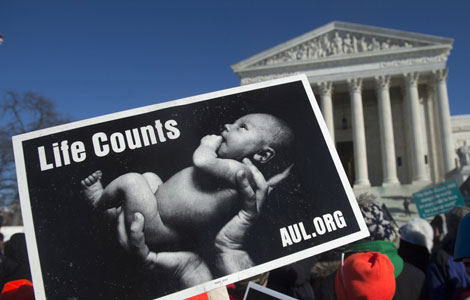
 US anti-abortion rallies march for life
US anti-abortion rallies march for life
 PLA navy drills in South China Sea
PLA navy drills in South China Sea
 Catnaps help travelers keep going
Catnaps help travelers keep going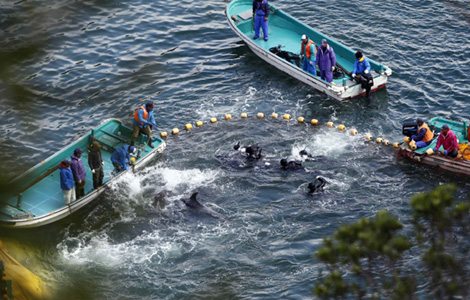
 Japan seeks US understanding about dolphin hunt
Japan seeks US understanding about dolphin hunt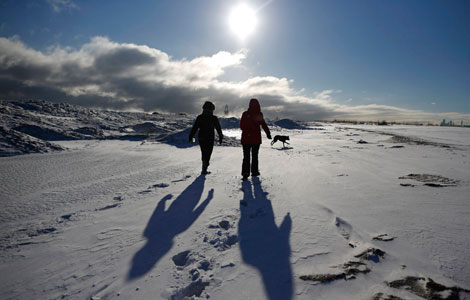
 Snow storm hits US East Coast
Snow storm hits US East Coast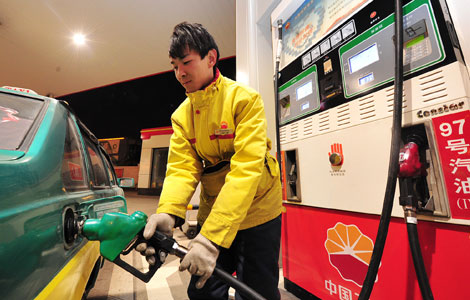
 China begins receiving oil from Russia
China begins receiving oil from Russia
 Underwater photos exhibited in Beijing
Underwater photos exhibited in Beijing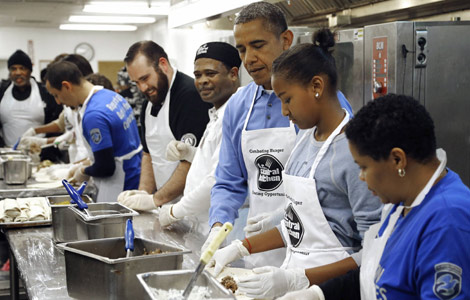
 Obama honors Dr King with volunteer work
Obama honors Dr King with volunteer work
Most Viewed
Editor's Picks

|

|

|

|

|

|
Today's Top News
Lawsuit blames plane’s warning systems for crash
Argentine president ends long public silence
Report shows big rise in Chinese overseas
Export adds to air blight
China approves 12 more free trade zones
Li calls for cooperative global economic system
Boeing sales soar to new heights
China to keep up with transgenics
US Weekly

|

|
